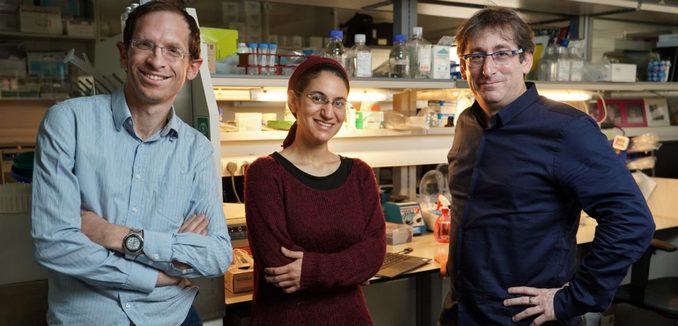When a carnival huckster tries to guess a person’s age, he looks at outward signs such as firmness of skin and color of hair. But wrinkles and grays don’t tell the whole story, according to a team of researchers at the medical schools of Technion-Israel Institute of Technology and California’s Stanford University.
These scientists propose in a paper published in the journal Nature Medicine that the state of a person’s immune system provides a far more accurate measurement of health than do physical signs or even chronological age.
The joint team has also developed a way to gauge “immune age,” which could open new frontiers in personalized medical treatment, drug and vaccine clinical development, and health management and insurance processes.
Over time, the immune system declines in function, a process accompanied by an increase in inflammation. This ultimately leads to an inability to cope with infections and a higher risk of chronic diseases such as cancer and heart disease, the leading causes of death among older people.
Due to the high complexity of the immune system, there is no real metric of immunological health beyond the complete blood count (CBC), a test that’s been standard since 1957 and reveals the number of immune cells but at a resolution too low to identify anything but extreme conditions.
Enter the new monitoring system developed by the Technion-Stanford team.
This study characterized the immune systems of 135 healthy people at different ages over a period of nine years, at high resolution and with thousands of different parameters. The researchers collected rich longitudinal data that showed a pattern of immune cellular changes occurring over time that are common to all adults, irrespective of individual differences between peoples’ immune systems.
“Individuals varied only at the rate their immune system changes, not in the actual pattern of change,” said Shai Shen-Orr, Associate Professor in the Technion’s Rappaport Faculty of Medicine and lead co-senior author of the study.
“This allowed us to map a path of how the immune system ages and to quantify an individual’s immune age. Unlike your actual chronological age, the immune-age is intimately tied to the state of one’s immune system, the body’s chief sentinel. We can therefore capture medically relevant information using immune age that physicians would otherwise miss.”
Identifying who is at risk of mortality
Using the new method, the researchers quantified the immune age of more than 2,000 adults in the Framingham Heart Study, involving people living in the Boston area for more than half a century.
By analyzing the data collected from this large sample, the researchers showed that advanced immune age predicts mortality at an older age beyond known risk factors.
This means that two seniors of the same age – one with an “older” immune system and one with a “young” immune system — could have very different life expectancies.
“This paper represents a very important step towards developing useful measures of immunological health, especially as it could help to identify who is at risk for cardiovascular and other diseases,” said Prof. Mark M. Davis, head of the Stanford Institute for Immunity, Transplantation and Infection and the other co-senior author of the study.
“It’s been 60 years since the last immunological benchmarks (CBCs) were introduced into general medical practice and so it’s high time we had something much more sophisticated such as we describe here, that reflects the tremendous explosion of knowledge that we have had in the field in this time.”
Because immune age is also affected by genetics, the researchers next want to map the immune age of populations with a genetic predisposition to a long life, such as descendants of people who lived past the age of 100.
“By doing so, we may characterize genes that affect immune age,” said Shen-Orr. “In addition, the method we developed will make possible identification of lifestyle, habits and medications that affect immune age positively or negatively.”
The research team also included Technion doctoral student Ayelet Alpert and computational biologist/data scientist Yishai Pickman of the Rappaport Faculty of Medicine, along with other Technion and Stanford researchers. The research has been supported by the US National Institutes of Health, the Ellison Foundation, the Howard Hughes Institute, the Israel Science Foundation, the Rappaport Institute and the Kollek and Taub Family Awards.
(via Israel21c)
[Photo: Israel21c ]




